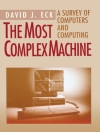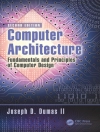Abstraction is a fundamental mechanism underlying both human and artificial perception, representation of knowledge, reasoning and learning. This mechanism plays a crucial role in many disciplines, notably Computer Programming, Natural and Artificial Vision, Complex Systems, Artificial Intelligence and Machine Learning, Art, and Cognitive Sciences. This book first provides the reader with an overview of the notions of abstraction proposed in various disciplines by comparing both commonalities and differences. After discussing the characterizing properties of abstraction, a formal model, the
KRA model, is presented to capture them. This model makes the notion of abstraction easily applicable by means of the introduction of a set of abstraction operators and abstraction patterns, reusable across different domains and applications. It is the impact of abstraction in Artificial Intelligence, Complex Systems and Machine Learning which creates the core of the book. A general framework, based on the
KRA model, is presented, and its pragmatic power is illustrated with three case studies: Model-based diagnosis, Cartographic Generalization, and learning Hierarchical Hidden Markov Models.
قائمة المحتويات
Introduction.- Abstraction in Different Disciplines.- Abstraction in Artificial Intelligence.- Definitions of Abstraction.- Boundaries of Abstraction.- The
KRA Model.- Abstraction Operators and Design Patterns.- Properties of the
KRA Model.- Abstraction in Machine Learning.- Simplicity, Complex Systems, and Abstraction.- Case Studies and Applications.- Discussion.- Conclusion.












